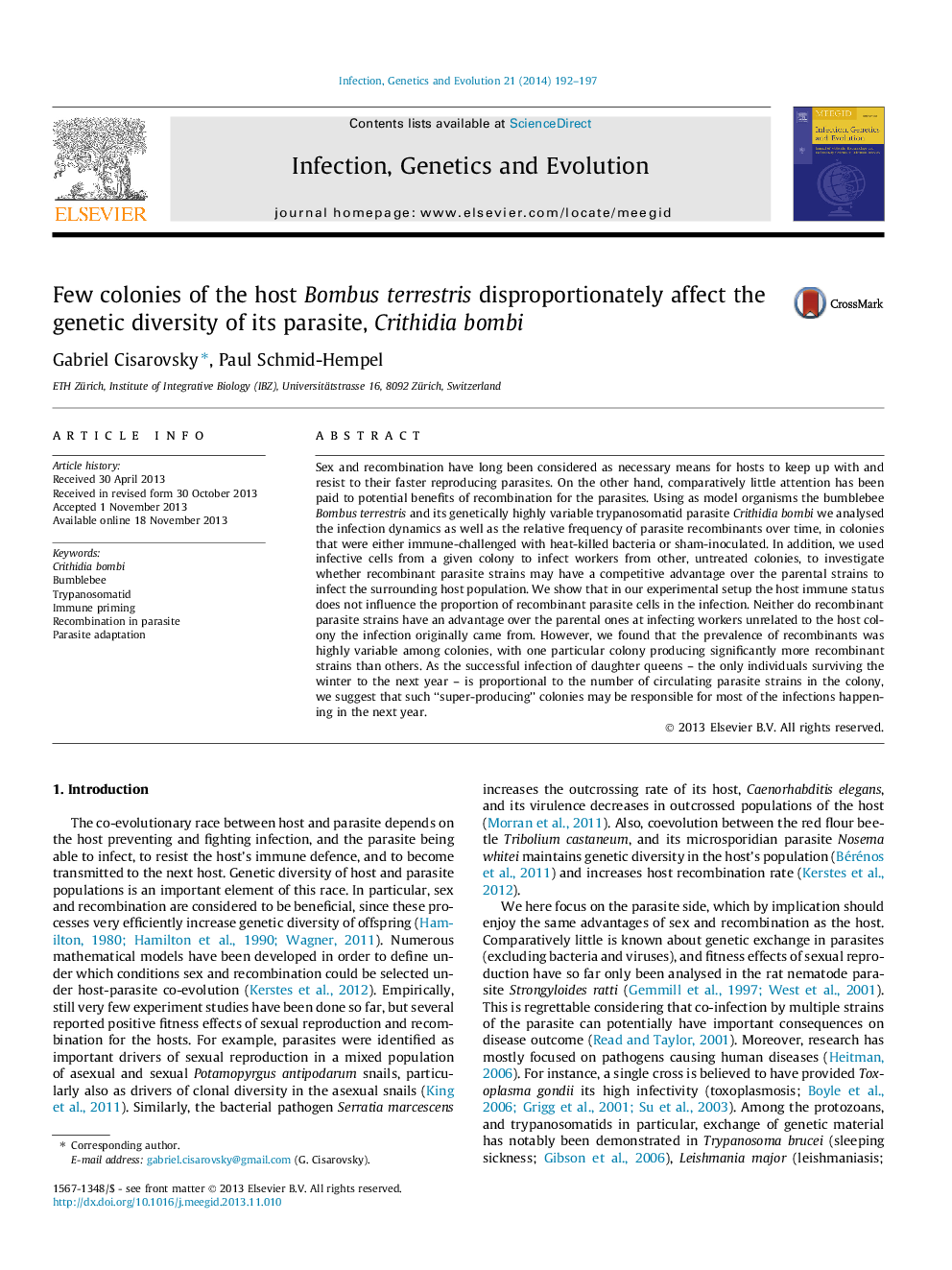| Article ID | Journal | Published Year | Pages | File Type |
|---|---|---|---|---|
| 5910197 | Infection, Genetics and Evolution | 2014 | 6 Pages |
Abstract
Sex and recombination have long been considered as necessary means for hosts to keep up with and resist to their faster reproducing parasites. On the other hand, comparatively little attention has been paid to potential benefits of recombination for the parasites. Using as model organisms the bumblebee Bombus terrestris and its genetically highly variable trypanosomatid parasite Crithidia bombi we analysed the infection dynamics as well as the relative frequency of parasite recombinants over time, in colonies that were either immune-challenged with heat-killed bacteria or sham-inoculated. In addition, we used infective cells from a given colony to infect workers from other, untreated colonies, to investigate whether recombinant parasite strains may have a competitive advantage over the parental strains to infect the surrounding host population. We show that in our experimental setup the host immune status does not influence the proportion of recombinant parasite cells in the infection. Neither do recombinant parasite strains have an advantage over the parental ones at infecting workers unrelated to the host colony the infection originally came from. However, we found that the prevalence of recombinants was highly variable among colonies, with one particular colony producing significantly more recombinant strains than others. As the successful infection of daughter queens - the only individuals surviving the winter to the next year - is proportional to the number of circulating parasite strains in the colony, we suggest that such “super-producing” colonies may be responsible for most of the infections happening in the next year.
Related Topics
Life Sciences
Agricultural and Biological Sciences
Ecology, Evolution, Behavior and Systematics
Authors
Gabriel Cisarovsky, Paul Schmid-Hempel,
